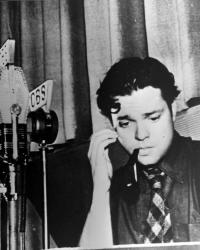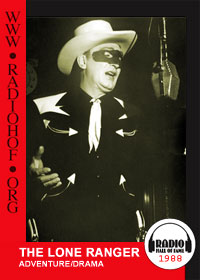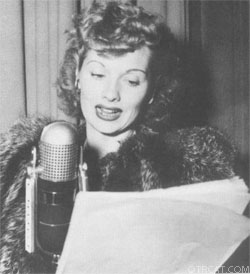On the Relevancy of Radio
In playing the infamous War of the Worlds broadcast for a class this past fall, and I was struck again (I’ve heard it more times than I can count) by what a wonderfully complex broadcast is was. The imaginative simulation of radio conventions, the mastery of geographic space, the gradual destruction of the apparatus of radio itself – beginning with broadcasts on a simulated national network, to simulated military broadcasts, and finally the return to those earliest days of radio amateurs – the program speaks to the hopes and fears of the age of simultaneous mass communication.1 A few of my students had heard of, if not heard, the broadcast in other media courses, but for the most part the entire event was new to them. This is not surprising. But as I listened I wondered how many media scholars had recently taken the time to listen to the broadcast. Even if they had heard War of the Worlds, I wondered how many might have heard other programs from radio’s past: Gang Busters, The Romance of Helen Trent, Burns and Allen.

While I work on contemporary television, most of my research time is spent exploring the history of radio during the Depression. However, say you are a radio historian to a lot of people, and you are likely to get a sometimes blank stare, or the standard, “that’s cool” response, which generally means “cool” yes, but relative to the dizzying world of media change we live with now, the era of “new” this and “post” that? I’m afraid that for some the answer is no. To my mind, this represents one of the central problems of the field, the consistent ignoring of radio, especially of radio’s past. (Okay, sure, I’m a bit biased here). This is not to say that most media scholars do not possess a general narrative of the radio past, based on a growing and significant body of work of radio history. Instead it is to say, that scholars generally accept a particular narrative of radio history as “settled,” then proceed to make a set of claims about contemporary media based on this narrative. This is unfortunate, because as a historian of radio, it is clear to me that there is still so much we don’t know and that our current narrative of media history leaves us too little prepared to understand the nature of contemporary changes. While there are a number of critiques to be made, here I will discuss the three that most concern me.
One of the central drawbacks of the current state of radio scholarship is the almost exclusive focus on the national networks as the source of radio’s power and cultural influence, an assumption that carries over to our historical and even contemporary understandings of television. While lip service is paid the tensions between local and national broadcasting, overall most historical research is centered on the practices of national networks. We still have little knowledge of the potential variety of local and regional practices, the relationship between these practices and regional and local forms of identity and politics, and alternative programming practices. Our understanding of broadcasting centering on the experience of the national networks prevents us from seeing the ways that media consumers (again the local does not imply non-commercial) have had different experiences with media based on their location, and have actively sought out local media experiences, through popular music, through local television programming, through local radio programming, through the creation of local news and sports celebrity, local styles of dress and address. The profusion of media choices might be understood as a continuation of this dialogue between the local and the national, after all, audiences in this case are often moving ahead of the networks.

The emphasis on national networks in our dominant narratives of radio history has the additional effect of creating an emphasis of overemphasizing stability at the immanent state of broadcasting. Of course, scholars of radio understand that radio’s stability was created out of blend of government and corporate actions. That realization aside, there is a subtle tendency to treat networks as fixed objects rather than as complicated social networks for managing a complex web of relationships between the numerous players necessary to make national broadcasting a reality. When this occurs, on our narratives of radio and television history change almost always appears as a “crisis” that threatens the ontological stability of the network object. It is also a narrative in which key historic moments of change, especially technological change, are featured as radical breaks. Understanding networks, national and otherwise, as a series of constantly negotiated relationships might cause us to re-think the nature of historical change.
My third critique will veer in a somewhat different direction. Media studies, and communication studies in general has witnessed the growth of visual studies. There have been some moves to build a correlate of “sound studies,” but in general there is an overwhelming emphasis of the visual aspects of even audio-visual media. Film scholars appreciate the dynamics of sound in film, but as radio scholars we still have not fully explored the aural aspects of the medium and of the potential continuities between radio and television sound. This very emphasis on the visual margainalizes even the study of contemporary radio. The overwhelming discourse of nostalgia and “wholesomeness” that surrounds the distribution of “Old Time Radio” recordings, itself, makes it sometimes difficult to hear the complexity, variety, and sonic richness of radio.

Ironically, one of the newest electronic media forms allows for unprecedented access to one of the oldest. There are numerous web-sites that stream “Old Time Radio” or offer free downloads. These sites offer a heavy dose of nostalgia, but also offer great opportunities to listen to the past. A few include The Oldtime Radio Network Library, Archive.org, and RadioLovers.
There is some excellent scholarship being produced about radio and television history, and for some readers this might seem as if I’m talking to the converted. My general sense is, however, that “radio studies” remains a small niche in the field and that the radio past seems at best irrelevant and at worst quaint or nostalgic to contemporary media scholars. As the foundational medium of simultaneous mass communication, the first “real time” medium, the first “mobile” medium, a medium that allowed for both broadcasting and point to point, a medium built of a network of social relationships, our understanding of radio history can only contribute to and enhance our understanding of the often bewildering state of contemporary media change.
Image Credits:
1. Orson Welles
2. The Lone Ranger
3. Lucille Ball
Please feel free to comment.
- Jeffrey Sconce offers one of the best discussions on the significance of the program in Chapter 3 of Haunted Media: Electronic Presence from Telegraphy to Television. Durham: Duke UP, 2000. [↩]
Stand by. Radio dissertation forthcoming.
Sorry if the above sounds cheeky, but I was carried away by enthusiasm for this article (and I am writing about radio currently). On a more serious note, I’ve found myself in the same situation: playing _War of the Worlds_ for students in a history of broadcasting course. Its formal innovations are impressive, but I’ve often wondered what it would be like to juxtapose that recording with recordings of programs from local and non-network stations. As Dr. Battles points out, local and regional programming offer a rich–if undiscovered–field for study. In both programming practices and aural aesthetics, how might research into “Golden Age” (roughly 1927-1948) local radio disrupt and challenge the belief that centralized, network radio would unite a nation of immigrants? How might studies of Golden Age local radio destabilize a time line that runs like this:
amateurs 1900-1919 (decentralized; local)
radio “craze” 1919-1927 (decentralized; local)
Radio Act of 1927: centralization
Golden Age (centralized, national)
TV Age: radio returns to the local to survive
One reason a “wholesome” impression of “Old Time Radio” endures may have something to do with the fact that recordings of network shows are copious compared to recordings of non-network programming. For example, I am still searching for recordings of pioneering DJs like Jack L. Cooper.
I think the “wholesome” issue is something that often applies to huge areas of the past — not just radio. The perception that the past is somehow naive is very difficult to combat, both in and outside the classroom.
HI , i want to know more about you, email me and will can chart more and know our self. I love this entertainment
I so much love this program , please i shall be glad if i can chart or get in contact with that beatifull angel i so on screen , please email me and tell me about youself….lov..u..u.u